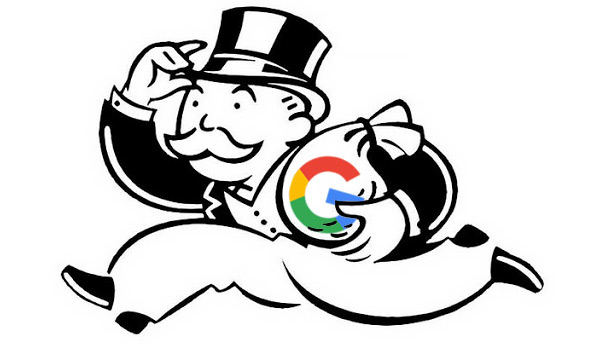In January, 2020, Google advised the marketing world that it was doing away with the third-party browser cookie in its industry-leading Chrome browser by 2022. Then came the pandemic. So earlier this month, when Google (Alphabet Inc) announced it would not develop its own replacement for third-party cookie data, or use anyone else’s, it seemed like a much bigger deal. And what Google is proposing as the basis for future online ad targeting is déjà vu.
The Background
Today, Google is the leader in online advertising:
- 52% of 2020 global online ad spend, $182B [1]
- 90% of the world’s desktop search activity [2]
- 95% of North America’s mobile search activity, almost half of which is because it pays Apple $8B-$12B a year to be the default search engine on MACs & iPhones (via Safari, Siri & Spotlight) [3]
Mobile ad spending accounted for 68% of all online ad spending in the U.S. in 2020 [1] and its proportion is growing, making the last point above very important.
Critical Data Distinctions
First-party data is collected from a company’s own customers (the first party). It is proprietary. For example, Google search and YouTube activity.
Third-party data comes from an aggregate of everyone’s customers. By definition, it is shared by all participants and is cross-site. For example, desktop and laptop browser cookie data. Google Chrome currently collects and shares more third-party cookie data than any other web browser.
Yet another important nuance: browser cookies don’t work well on mobile devices. Mobile devices attach a unique device ID to the data, which becomes first-party data for the hardware manufacturer. Apple is dominant and Google is a much smaller player. Hence Google’s desire for the search engine deal with Apple.
The Big Event
Big tech companies have been facing increasing scrutiny over data privacy and antitrust (non-competitive behaviour based on monopoly position) concerns from governments around the world. On Oct 20, 2020, the US Department of Justice filed suit against Google in an antitrust case over its search dominance. One of the DOJ’s big areas of concern is Google’s search engine deal with Apple.
What’s Really Going On Here?
Like all companies owned by others, Google needs to protect its profitability from government regulators at all costs.
The best future for online advertising services, the lifeblood of all big tech, is first-person data. Google is already the leader there. Forsaking browser cookie data is a relatively easy give for Google. It’s just one of the many pieces of consumer data that gets picked up in search. Only Google’s AdSense and Ad Manager properties, representing about 10% of total 2020 revenue [4] are mostly dependant on third-party cookie data. Dropping cookies also sends the right conciliatory message to consumers and regulators.
The bigger issue for Google is replacing the at-risk search engine relationship with Apple. Losing that means losing user data for half its current search traffic. Neither Google nor Apple want this mutually-lucrative deal to end in a hurry. Google’s new ad targeting technology is the contingency plan while this critical mobile search engine issue gets resolved.
Déjà Vu and Déjà Vécu
Google says it will replace third-party browser cookies data collection with new technology it calls the Privacy Sandbox. Website browsing data will be collected at the device level using a ‘FLoC API’ (gotta love Google’s coder lingo) and will be anonymised from the very start. Using this data, consumers will be aggregated into 1000-person ‘cohorts’ of similar interests. So the algorithm will predict brand interest and purchase behaviour based on associated interests and purchase.
For those of you who worked in marketing before Google—what does this strategy sound like? It sounds like the way traditional/offline/linear media has been sold for decades. Since the Mad Men era. The source of all that old-school-anonymised cohort data? Nielsen diaries, Print Measurement Bureau U&A studies and radio audience surveys. Every linear medium has/had its own audited program-rating and quantitative consumer U&A research. Google is starting to do the same thing, turning consumers’ digital devices into its proprietary first-party data collection devices.
Going All Ritson On You
Based on early testing, Google claims FLoC “is delivering 95% of the conversions per dollar spent when compared to cookie-based advertising” [5]. It’s curious that delinking third-party purchase data from ad targeting hardly hurts online adverting ROI at all. Wasn’t the hallowed link to purchase behaviour the reason online advertising’s was going to crush its old analog cousins?
Ad targeting based on purchase data and website visits just before purchase are hitting very low in the marketing funnel. Linear media, by necessity, needs to focus on esoteric high-funnel things like brand image building and brand positioning. And it needs to be a little more patient.
What a pain it is being as successful as Google. Just like playing the game of Monopoly, you tend not to have many friends when you own all the best properties. Except those you choose to cut deals with.
- Sam Schechner and Keach Hagey, “Google to Stop Selling Ads Based on Your Specific Web Browsing”, www.wsj.com, Mar 3, 2021.
- Dan Gallagher, “Google Can Now Afford to Let the Cookies Crumble”, www.wsj.com, Mar 3, 2021.
- Tim Higgins et al, “How Apple and Google Formed One of Tech’s Most Powerful Partnerships”, www.wsj.com, Dec 15, 2020.
- Estimate by Coyote based on Google’s 2020 quarterly reports.
- Chetna Bindra, “Building a privacy-first future for web advertising”, Google Ads & Commerce Blog, Jan 25, 2021.







Looks like Europe/EEA, with its ever-so-strict GDPR, may have trouble with Google’s FLoC technology. Google’s first testing will be in the US market. My layman’s read of this is that Google assumed the collection and processing of anonymised consumer data does not require consumer consent, but the EEA disagrees. There seems to be an easy fix given that around the world, consumers have consented to the collection and processing of personalised data via third-party cookies and innumerable online, app and software user agreements.